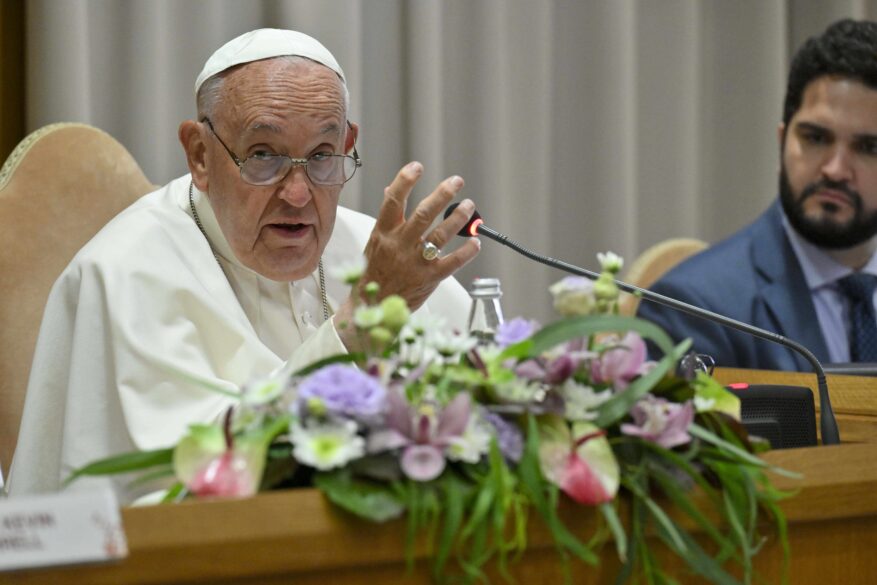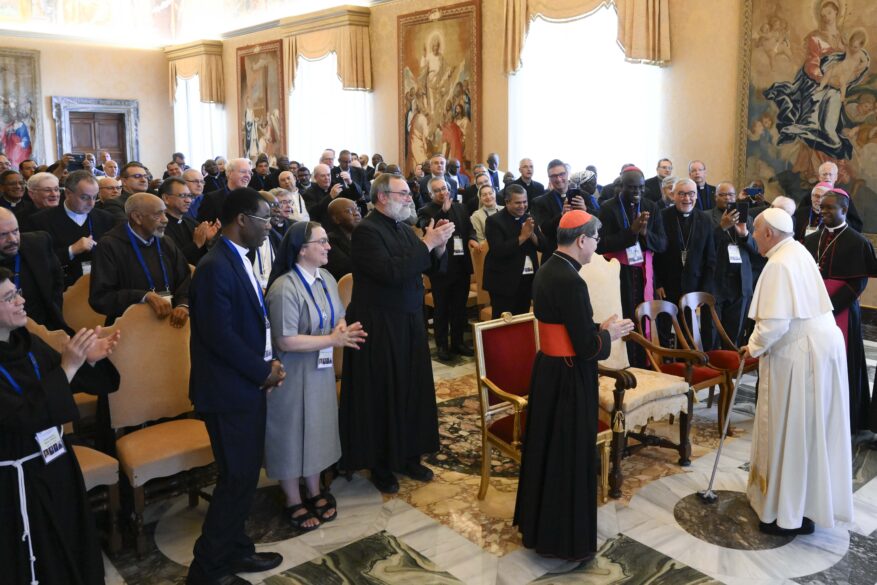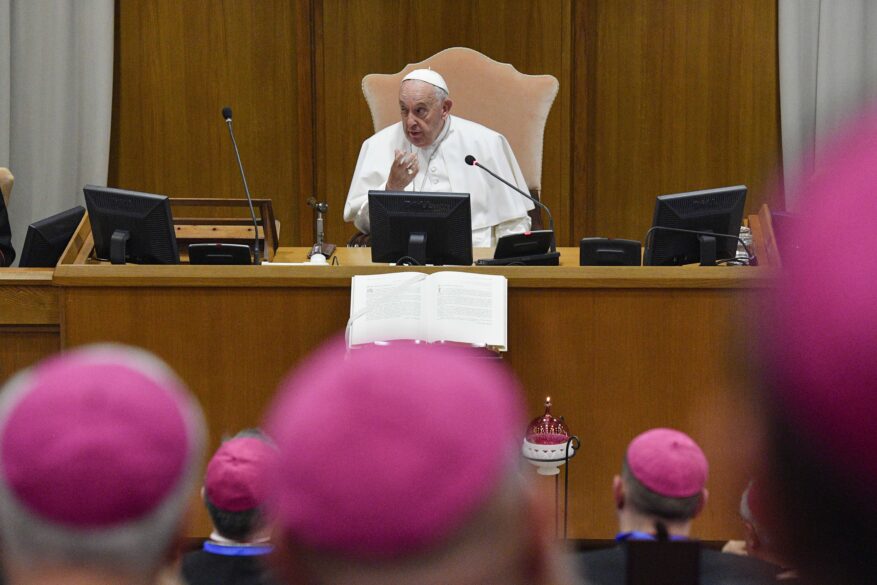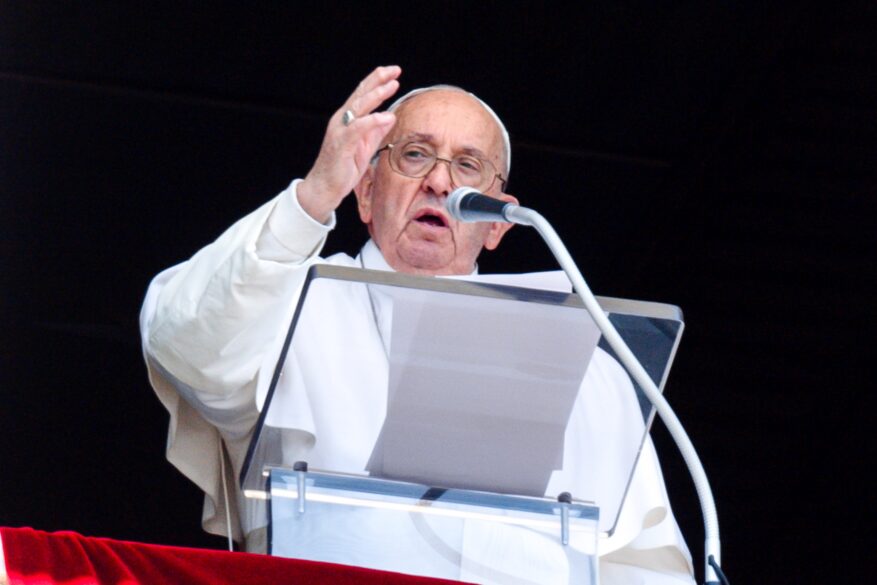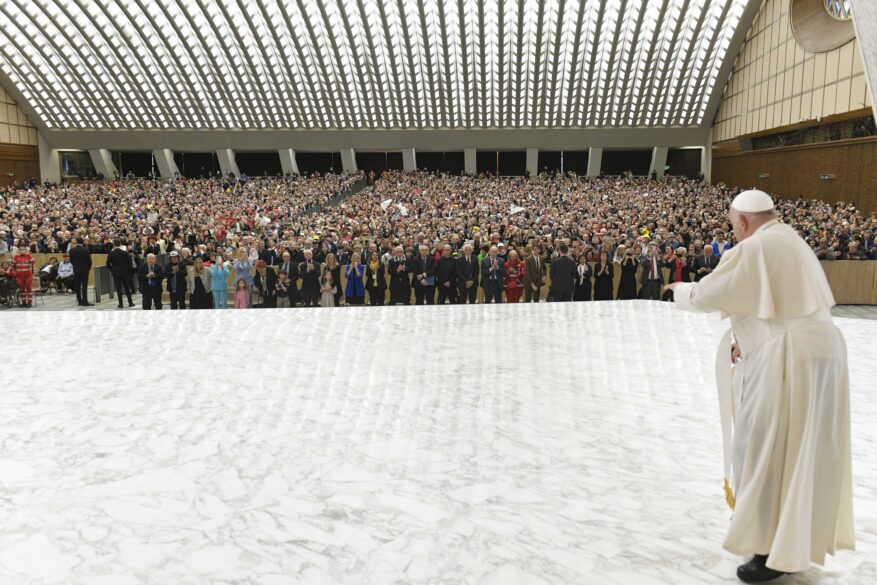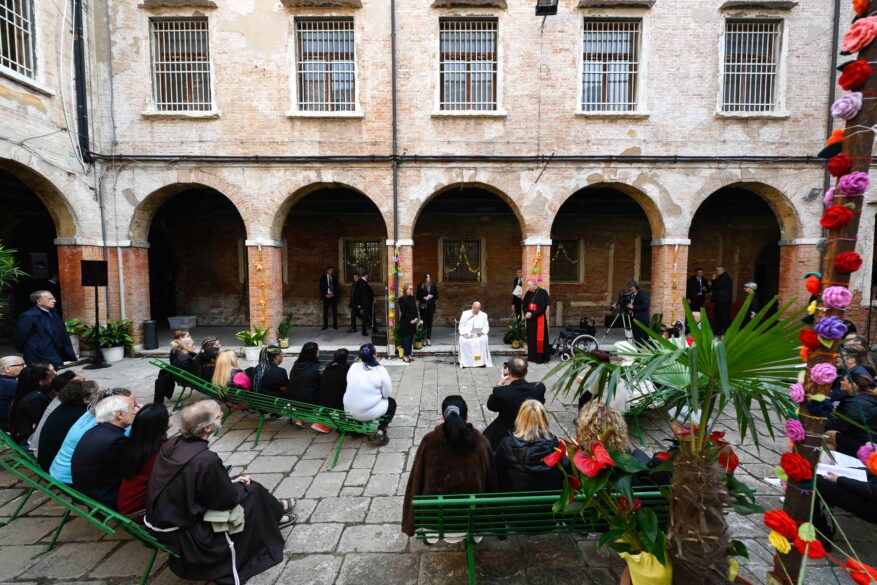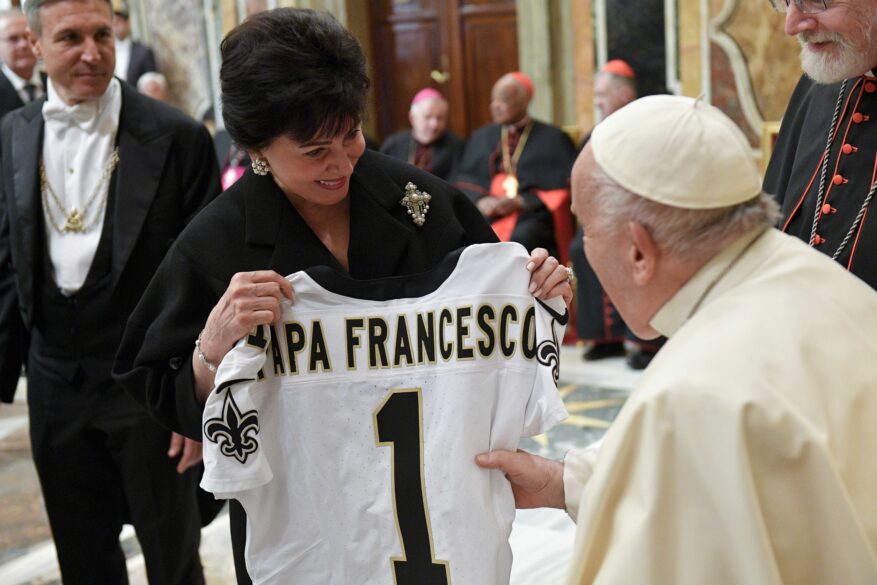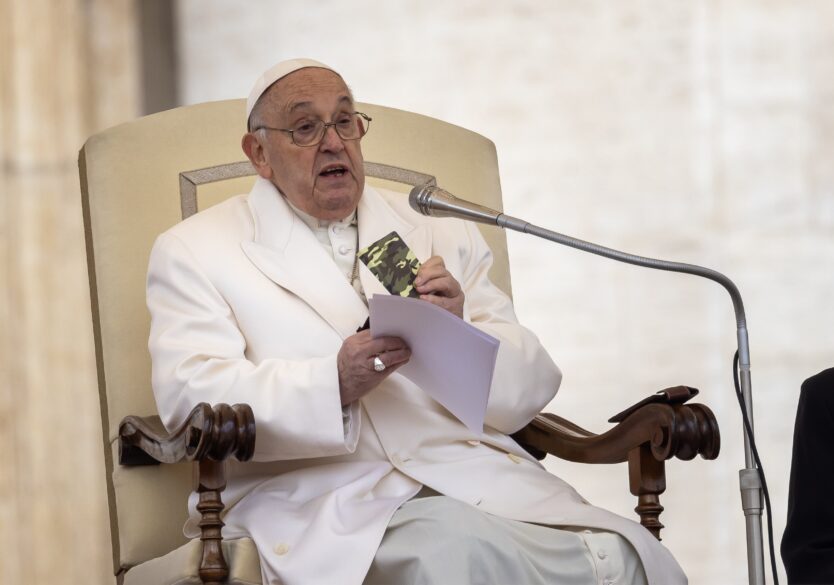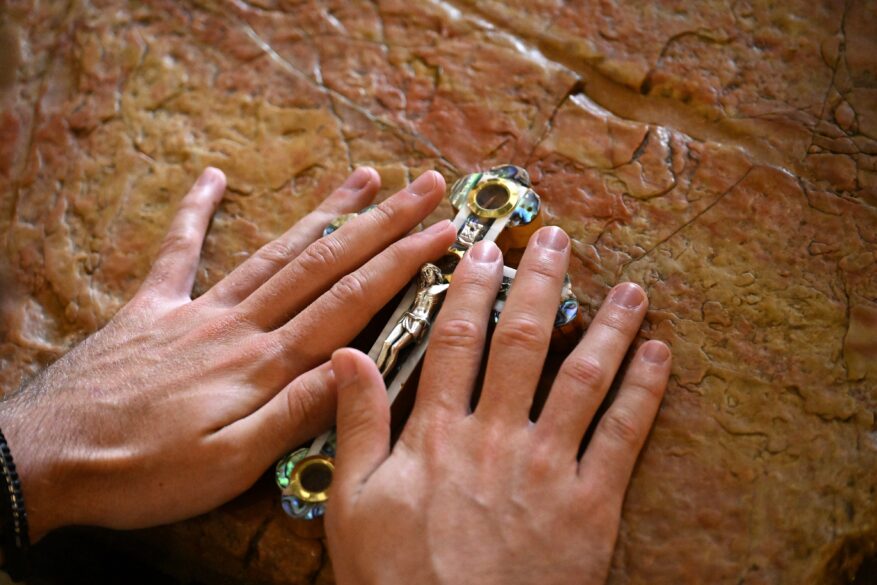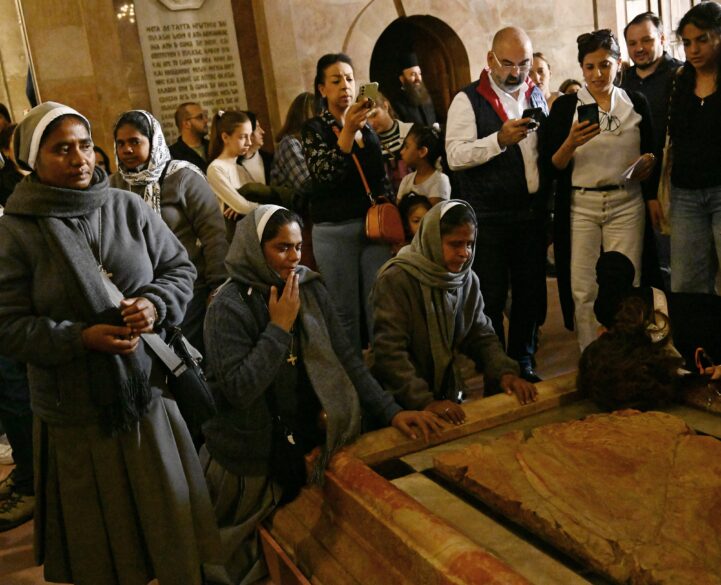Por Justin McLellan
CIUDAD DEL VATICANO (CNS) – El cielo no es una bóveda segura protegida de los extraños, sino un “tesoro escondido” al que se llega cultivando las virtudes, dijo el Papa Francisco.
Antes de rezar el Ángelus en la Plaza de San Pedro en la fiesta de San Pedro y San Pablo el 29 de junio, el Papa reflexionó sobre Jesús dando a San Pedro, el primer Papa, las llaves del reino de los cielos.
“La misión que Jesús confía a Pedro no es la de atrancar las puertas de la casa, permitiendo la entrada sólo a unos pocos invitados selectos, sino la de ayudar a todos a encontrar el camino para entrar, en fidelidad al Evangelio de Jesús”, dijo el Papa Francisco tras celebrar la Misa en la Basílica de San Pedro.
El cielo, añadió, es “para todos. Todos, todos, todos pueden entrar”.
El Papa dijo que San Pedro “recibió las llaves del reino no porque fuera perfecto, no, es un pecador, sino porque era humilde, honesto y el Padre le había dado una fe sincera”.
Incluso después de muchas pruebas y contratiempos, el apóstol Pedro fue el primero en experimentar por sí mismo “la alegría y la libertad que vienen del encuentro con el Señor”, y el primero “en comprender que la autoridad es un servicio para abrir la puerta a Jesús”.
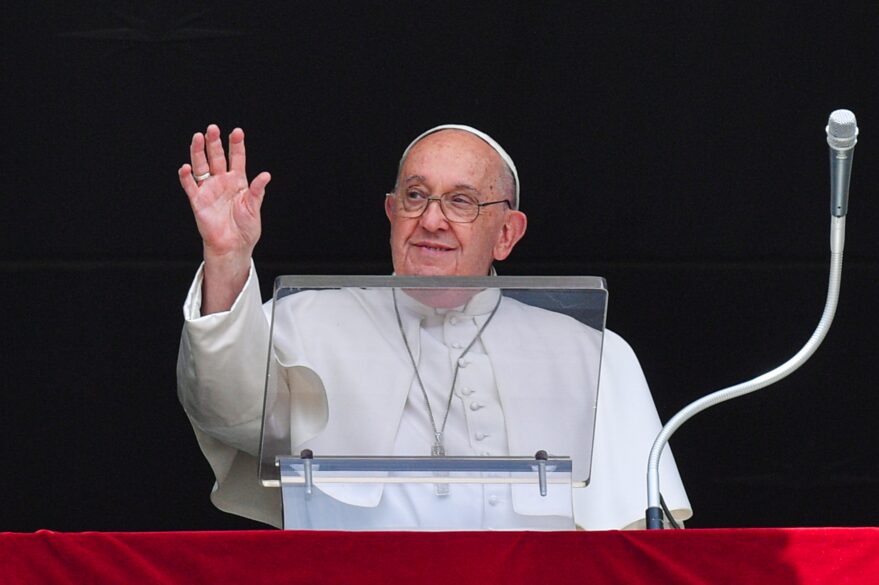
Al día siguiente, el Papa Francisco volvió a asomarse a la ventana del Palacio Apostólico para cumplir con su habitual cita dominical de rezar el Ángelus con los fieles. Se centró en el tema evangélico de la inclusividad reflexionando sobre la lectura evangélica del día de San Marcos en la que una mujer es curada tras tocar el manto de Jesús y una niña resucita después de que Jesús la tomara de la mano.
Destacando la importancia del contacto físico en ambas curaciones, el Papa preguntó: “¿Por qué motivo es importante ‘tocar’?”
“Es porque estas dos mujeres – una porque tiene pérdidas de sangre y la otra porque está muerta – se consideran impuras y por lo tanto con ellas no puede haber contacto físico”, dijo. “Y, en cambio, Jesús se deja tocar y no teme tocar”.
Al llevar a cabo la sanación física, Jesús desafía una concepción religiosa equivocada, según la cual Dios separa a los puros por un lado y a los impuros por otro”, dijo el Papa. “En cambio, Dios no hace esta separación, porque todos somos sus hijos”.
Añadió que la impureza “no deriva de alimentos, enfermedades y ni siquiera de la muerte, sino que la impureza viene de un corazón impuro”.
El Papa Francisco instó a los cristianos a tomar en serio la lección de la lectura del Evangelio del día, que “frente a los sufrimientos del cuerpo y del espíritu, frente a las heridas del alma, frente a las situaciones que nos abaten e incluso frente al pecado, Dios no nos mantiene a distancia”.
“Dios no se avergüenza de nosotros, Dios no nos juzga”, dijo. “Al contrario, Él se acerca para dejarse tocar y para tocarnos y siempre nos levanta de la muerte”.

